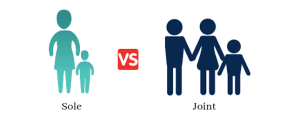Many of our clients have initial questions about how the major decisions for the minor children will be made after the divorce is completed. While joint decision making is conceptually ideal, in many cases requiring the parties to make major decisions together can create disagreements, leading to further litigation. In some cases, a major decision like religion is not at issue but matters like the children’s extracurriculars and medical/dental or therapy treatments often create discord among parents. How does the Court assess whether to award a parent joint or sole decision making for the children?

The court determines whether to grant sole or joint decision-making responsibility (previously referred to as custody) for minor children based on the best interests of the child, as outlined in the Illinois Marriage and Dissolution of Marriage Act (750 ILCS 5/602.5). The court evaluates several specific criteria to decide whether one parent should have sole decision-making authority or if both parents should share joint decision-making responsibility. Below are the key factors and considerations:
The court often considers the following factors to determine what arrangement serves the child’s best interests:
- Physical and Mental Health of All Parties:
- The mental and physical health of the parents and the child are considered. Any health issues that could impair a parent’s ability to make sound decisions may influence the court’s ruling.
- Ability to Cooperate:
- For joint decision-making, the court assesses whether the parents can cooperate effectively and make decisions in the child’s best interests. This includes their ability to communicate, resolve disputes, and prioritize the child’s needs over personal conflicts.
- If the parents demonstrate significant conflict or an inability to work together, the court may lean toward granting sole decision-making to one parent.
- Level of Each Parent’s Participation:
- The court examines each parent’s past involvement in significant decision-making for the child, such as decisions about education, healthcare, religion, and extracurricular activities.For joint decision-making, the court evaluates the logistical feasibility, including the physical distance between the parents’ homes, which could affect their ability to coordinate decisions.
History of Abuse or Violence:
-
-
- Any history of domestic violence, abuse, or neglect by either parent toward the child or another household member is a critical factor. Such behavior may lead to sole decision-making being awarded to the non-abusive parent or restrictions on decision-making authority.
-
- Child’s Needs:
- The court considers the specific needs of the child, including educational, medical, emotional, and developmental needs, and which parent is better equipped to address them.
- Other Relevant Factors:
- The court has discretion to consider any additional factors it deems relevant to the child’s best interests.
Sole vs. Joint Decision-Making
- Joint Decision-Making:
- Typically awarded when parents demonstrate a willingness and ability to cooperate and communicate effectively.
- Requires a parenting plan that outlines how decisions will be made regarding key areas like education, healthcare, religion, and extracurricular activities.
- Joint decision-making does not necessarily mean equal parenting time or equal input but rather shared responsibility for major decisions.
- Sole Decision-Making:
- Awarded when the court determines that one parent should have exclusive authority over major decisions, often due to high conflict, logistical challenges, or one parent’s inability to act in the child’s best interests.
- The other parent may still have input or parenting time, but they do not have legal authority over major decisions unless otherwise specified.
 Illinois Divorce Lawyer Blog
Illinois Divorce Lawyer Blog

